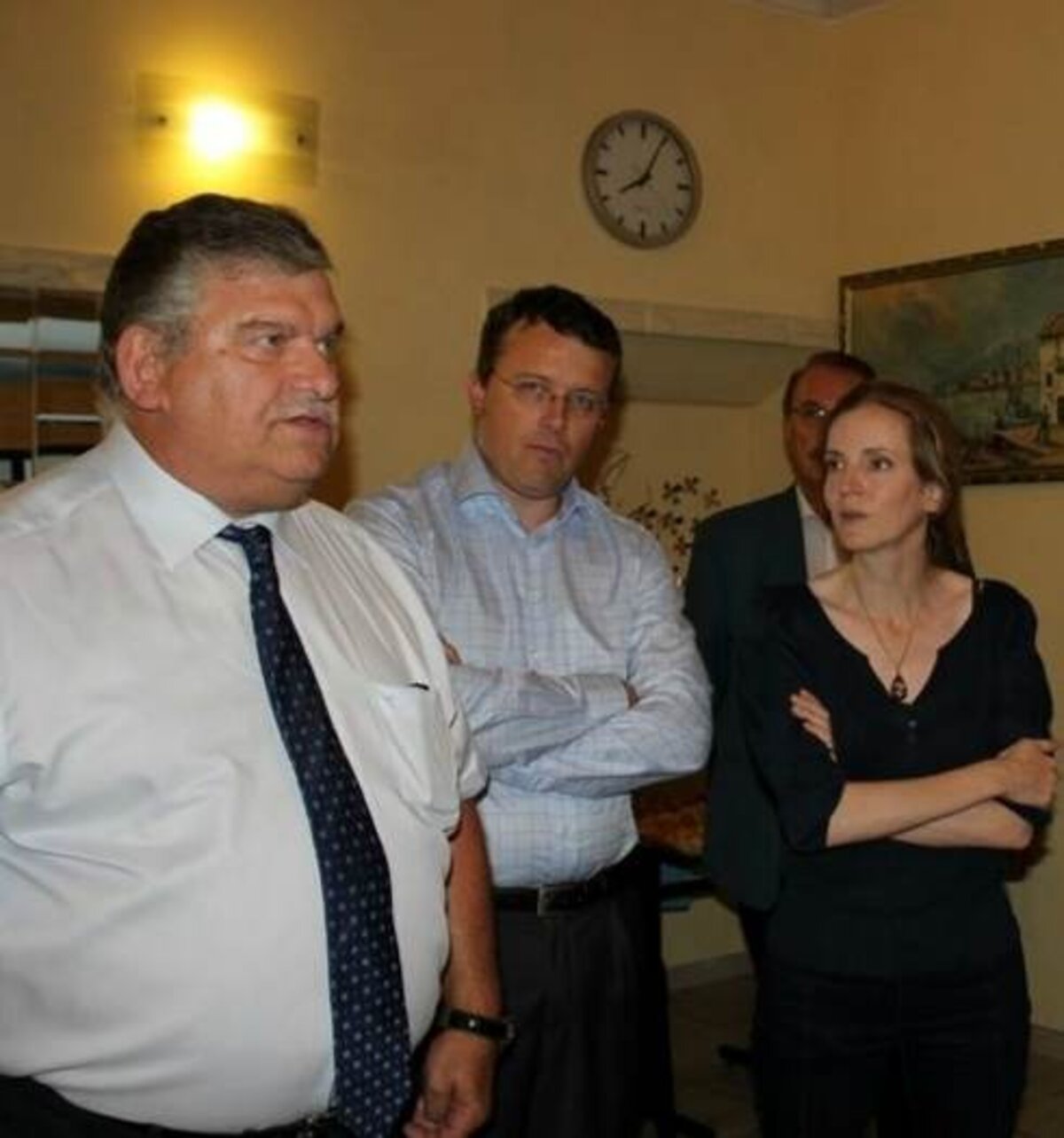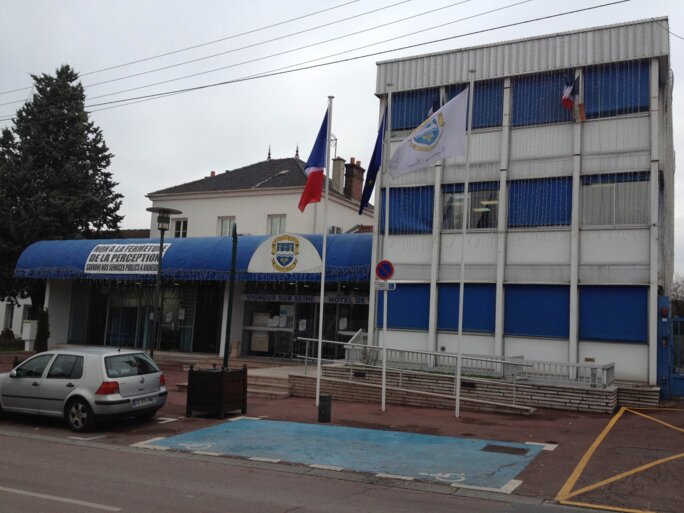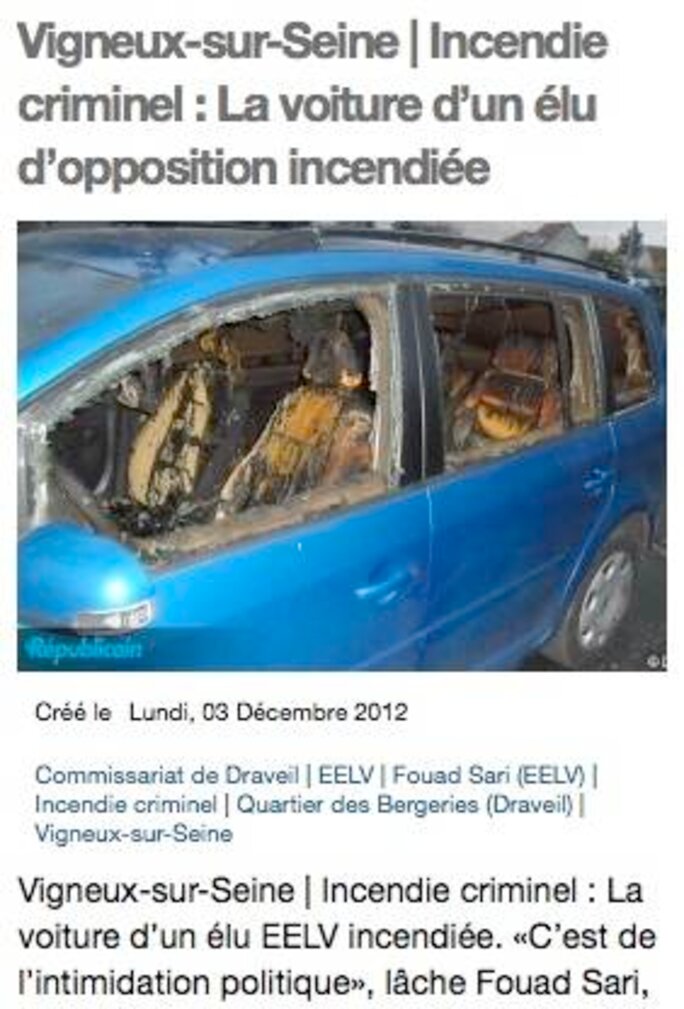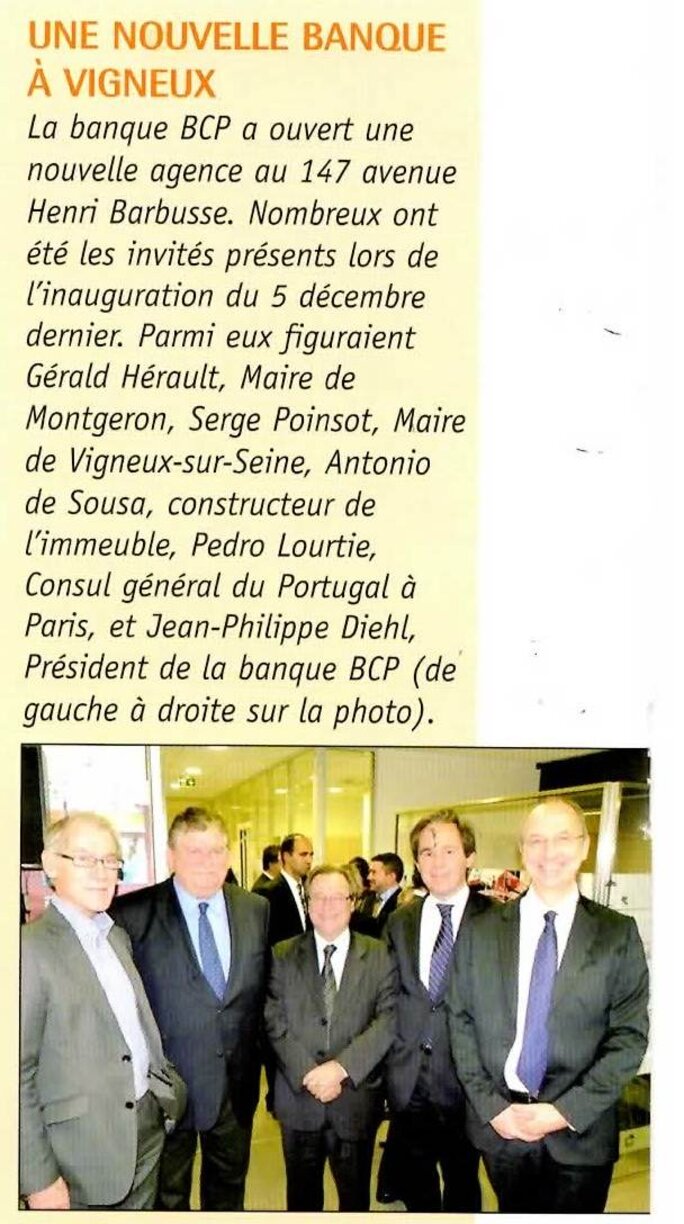The mayors of several towns in the southern suburbs of Paris at the centre of a suspected corruption scam involving allegations of the fixing of public procurement contracts, bribes and influence peddling have still not been questioned by police who opened an official investigation into the graft claims more than five years ago.
The graft allegations centre on town halls situated within the département – the French equivalent of a county – of the Essonne, at its closest to the French capital where the sprawling, uninterrupted urban suburbs are administratively divided into towns.
Following a complaint by a local councillor in 2007, the public prosecutor’s office in Evry, the administrative centre of the Essonne, opened a preliminary investigation into suspected corruption, focussing on the town hall in Vigneux-sur-Seine, a town with a population of 27,000 situated close to Orly airport. Since then, a number of local councillors and public employees have given statements to police about illegal and irregular practices of several town halls in the region. These included the delivery of building permits in exchange for cash, public contracts awarded without proper competition and conflicts of interest between mayors and the beneficiaries of local construction contracts.

The allegations cross the political divide. One witness has described how the conservative UMP party mayor of Vigneux was gifted with a BMW 4x4 vehicle in circumstances that remain unclear, while his socialist colleague in nearby Montgeron enjoyed holidays in north Africa with the architect who was awarded most of the town’s major building projects.
Yet despite mounting evidence of graft activities, and even physical threats against those involved in the revelations, contained in statements collected in more than five years of police enquiries, none of the mayors concerned have yet been questioned by detectives.
The affair began with a burglary on August 1st 2007, at the home of Annick Lebreton, deputy-mayor of Vigneux and who was in charge of urban planning. “Curiously, we saw that my desk had been turned inside out and a number of files relating to property projects in the town had been emptied or were missing,” Lebreton subsequently explained in a missive to members of the town council. “These were documents that I was about to make public.” Some jewellery and cash were also taken.
After she gave a statement to police, they immediately informed Evry public prosecutor’s office of the case. “On August 2nd, the public prosecutor called me to ask that I accept to be questioned by a special squad of the Versailles Judicial Police [detective force],” Lebreton continued. “This interview, which took place in the offices of the Judicial Police in Versailles, will in all probability lead to other interviews.”
The Judicial Police, or Police Judiciaire (PJ), are a police detective force that investigates serious crime, equivalent to the CID in Britain. They are grouped in regional centres, including Versailles.
The opening of the investigation was to lead to a major split in the town council. Weeks before, Lebreton had written to the mayor of Vigneux, Serge Poinsot, to inform him that she was aware that “rumours of an important nature” were circulating and that there were “even suspicions about you […] essentially regarding property and construction issues”. She complained that for six months she had been sidelined from her urban planning responsibilities which were being managed, in her place, by the mayor’s inner staff.
Physical threats and vandalism
The battle between Lebreton and Poinsot, both members of the conservative UMP party, ended with her being sacked by the mayor from her urban planning duties in September 2007.
The suspicions Lebreton referred to were subsequently detailed before the Judicial Police (PJ) in Versailles in January 2008 by a building trade professional, whose name is withheld here. Her statement concerned a construction project in the town. “I told the Versailles PJ I was asked to pay for the building permit: 5,000 euros,” she recalled. “For me, I was offered a knocked-down price because generally it was 5,000 euros per habitation and I had three.” She said she received the permit but that after she refused to pay the backhander, the town hall attempted to have it quashed. A lengthy administrative battle followed, which she finally won.

Enlargement : Illustration 2

“That has to be proven, 5,000 euros per building permit wouldn’t be a lot, but per habitation that starts to be a lot,” Michel Dupuis, employed as the town’s chief architect, told Mediapart. “I don’t anything about it.”
Former Socialist Party town councillor, Patrice Finel, told Mediapart: “I was told about a small property developer who had to pay up 20,000 euros for a building permit, applied for in June, for four habitations.”
On November 28th 2009, Vigneux town hall’s director of finances, Gérard Lende, who had held the post since 2004, contacted the public prosecutor’s office in Evry. “I am writing to you because I live in fear,” he wrote. “When, in 2007, the public prosecutor opened an investigation into the property market activities of the town of Vigneux, I thought it was all going to stop. That wasn’t the case.”
He informed the prosecutor that his deputy finance director, Jacques Vaudron, had narrowly escaped an attack by a gang tasked “to teach him a lesson simply because he refused to sign certain documents”.
One local councillor, whose name is withheld, told Mediapart that he was aware of the plot. “The orders were to beat him up and leave him in the boot of a car,” he said.
In December 2009, shortly after Lende’s letter to the public prosecutor, the personal secretary to the mayor of Vigneux was attacked as she left her home. Peguy G. (last name witheld), was so badly beaten that she was hospitalised. The mayor requested that she be given police protection, but this was turned down.

More recently, a Green party opposition councillor, Fouad Sari, complained of being threatened in early 2012 by a man wielding an iron bar and who allegedly promised him “war” following a rowdy debating session of the town council. The windscreen of his car was later vandalized, and last December the vehicle was set on fire (pictured in a report by local paper Le Républicain de l'Essonne, left).
In his letter to the public prosecutor, finance director Gérard Lende said he had been a witness to the handing over of a BMW vehicle as a gift to mayor Serge Poinsot from a mysterious donator. He detailed how, in December 2008, he had accompanied Poinsot, along with another town hall employee, Raymond T. (last name withheld), to pick up the vehicle at a local car dealership.
While travelling there, Lende wrote, Raymond T. showed him a cheque made out for 39,120 euros drawn from a Portuguese bank. After handing over the cheque at the dealership, and completing the necessary paperwork, the three men were led to the basement to meet the head of the workshop for what Lende described as “the presentation and delivery of the BMW 4x4 5-series in an adjoining street.”
“From there, Monsieur Serge Poinsot took possession of the vehicle and drove it to his house in [the nearby town of] Yerres.” He described the vehicle as being of a dark beige colour with blacked-out windows.
Lende said that Raymond T. was initially registered as the owner of the car, which was also insured in his name, until July 2009 when he handed over the car to the mayor for free.
Close-knit group
Lende also denounced the manner in which attribution of public contracts in the town were handed to the same companies. Examples of this were confirmed by the regional auditors’ office, the chambre régionale des comptes, in a 2012 report on Vigneux.
Yet, four years after Lende’s testimony, neither the Evry public prosecutor’s office, nor the police in Versailles, have questioned Poinsot over the terms of his acquisition of the BMW vehicle. Questioned about the vehicle by Mediapart, the mayor replied: “At 60 years’ old I am entitled to buy a second-hand car,” adding that it was “a private affair”.
“I do what I want, it’s a friend,” he continued. “It wasn’t France-Pierre which offered me the 4x4.” Poinsot was referring to property development company France-Pierre, whose head is Antonio de Sousa, and which is currently involved in several large development projects in the town. Contacted by Mediapart, de Sousa declined to answer the question of whether it was he who funded the purchase of the vehicle.
Antonio de Sousa has had controversial relations with several mayors in the Paris region. In 2006, Jean-François Oneto, the mayor of Ozoir-la-Ferrière, a town in the Seine-et-Marne département, just west of the Essonne, enjoyed a holiday at a 4-star hotel in the Deux-Alpes skiing resort with members of the de Sousa family. The holiday coincided with the granting to France-Pierre of a major public contract at Ozoir-la-Ferrière, and caused a scandal after France Pierre’s competitor, who had worked three years in vain preparing the project, revealed the holiday bash.
In 2009 in Villeron, a town in the Oise département north of Paris, France Pierre sold the local mayor, Christian Nahon, an apartment in a luxury residence built by the company for 40% less than the normal asking price. France Pierre was granted land plots for construction in the town and Nahon was subsequently placed under formal investigation in 2010 for ‘forgery and the use of forgery’, and latterly for ‘influence peddling.

Enlargement : Illustration 4

Gérald Hérault , the socialist mayor of Montgeron, which borders Vigneux, and who is also vice-president of the Essonne general council, has on at least two separate occasions rented property from de Sousa. According to unconfirmed reports, it was he who introduced de Sousa to the mayor of Vigneux, Serge Poinsot. In an article published in the Vigneux town hall magazine in January (pictured, left) Hérault and Poinsot appear in a photo of the inauguration of a branch of the Portuguese bank BCP in Vigneux, joined by Antonio de Sousa whose company built the edifice.
In Montgeron, de Sousa’s latest construction is a residential block that surrounds a mediatheque designed by the architect François Malisan. In December 2011, the architect was chosen by the Montgeron town hall to build the town’s new entertainment hall. “More than 100 candidates were in the running,” wrote the socialist mayor’s principle political opponent, the conservative UMP party councilor François Durovray, in his local party magazine, “every time it is [François Malisan’s] agency that wins the contract, even when it is the most expensive. The Lelong crèche was him; the secondary school was him; the mediatheque, it was him again. The Hélène-Boucher school, it’s still him. The one exception was the Jean-Moulin school…awarded to one of his associates!”
Durovray has also given a statement to the Versailles detectives.
Along with the construction of an indoor market hall, Malisan has been awarded six major building contracts in Montgeron. Contacted by Mediapart, mayor Gérald Hérault did not deny that he spent holidays with Malisan in Morocco, but said that concerned his “private life”. He said that local councillors appreciated Malisan’s local ‘Montgeronnais’ architectural style. Speaking of the six contracts awarded to his architect friend, he said: “That’s 18 million euros, […] And that represents just six projects over a mandate of 17 years. It’s not because someone works well that they should be ousted.”
'Gross' delay in police questioning
Hérault’s conservative opponent François Durovray now sits on the town hall commission that oversees its public procurement tenders. He told Mediapart about the process in which Malisan was awarded his latest contract: “During the meeting of the competition jury, I was surprised to see Monsieur Didier Courant, the architect appointed [to advise the jury] by the mayor, pay a very strong tribute to Monsieur Malisan, whereas 4 out of 120 candidatures were to be selected,” he told Mediapart.
The jury, as required by law, was to choose the best propositions without knowing the identity of the architect, when, according to Durovray, Courant “intervened in a decisive way to show ‘the most interesting’ candidature to those councillors who were the most hesitant, that of Monsieur Malisan”.
“He told them, ‘It’s the most expensive but it is well thought-out’. The councillors changed their opinion after that talk,” Durovray added.
Contacted by Mediapart about Durovray’s account, Didier Courant – who also works as a partner to his colleague Michel Dupuis on projects in Vigneux – said he had not been aware that Malisan had previously been awarded five contracts in Montgeron. “I often find him up against me in the tender competition, I know that he has a lot of luck,” Courant said.
Malisan’s “luck” and that of other companies in the region has attracted the attention of inspectors from the French finance ministry’s department in charge of investigating complaints involving competition practices and fraud, the Direction Générale de la Concurrence, de la Consommation et de la Répression des Fraudes.
In October 2012, a spokesperson for the public prosecutor’s office based in Evry confirmed to French press agency AFP that “one or two years’ ago” a preliminary investigation had been opened into suspected influence peddling for the attribution of public procurement contracts in order “to clarify the conditions in which certain property development projects in the Essonne were carried through”.
Mediapart asked both the public prosecutor’s office and the judicial police in Versailles to explain the slow progress of the investigations. The public prosecutor’s office cited the heavy workload of the Versailles detectives, while the latter blamed the slowness of the public prosecutor’s office.
“Three years before someone is questioned, that strikes me as surprising,” commented one high-ranking police officer, speaking to Mediapart on condition that his name was withheld. “Before a case of suspected corruption, concerning a mayor, you don’t say ‘we’ll look at that next year’, that seems gross to me.”

There is unease among some locally at the closeness of some mayors with members of the police. Serge Poinsot, mayor of Vigneux, has recruited on his staff the wife of a police chief inspector. Another chief inspector, Alain Lubin, who is also deputy head of a police training school based in nearby Draveil, sits on the Vigneux town council and is currently in charge of the town’s sports activities (see photo, right).
Property developer Antonio de Sousa sold an apartment to the current second in command of the Versailles Judicial Police, Daniel H. (last name withheld), when the latter was a superintendant based in Montgeron. As number two of the Versailles detective force, the officer technically acted as a supervisor to the preliminary investigation opened into the allegations of corruption in Montgeron and Vigneux.
Contacted by Mediapart, he said he had not remained in contact with de Sousa after meeting him for the first time when he bought his apartment. Concerning his role in the investigation into suspected corruption among the town halls, he said “there could have been reports that were transferred” to him but that he was “not certain to have personally worked on them”.
“Any eventual calling into question of [Daniel H.] is completely unfounded,” said the head of the judicial police in Versailles, Philippe Bugeaud, also contacted by Mediapart. Bugeaud said the investigations had progressed “normally”.
-------------------------
- Mediapart interviewed Serge Poinsot by phone on January 10th, which was followed by a further list of questions sent to him by email on January 31st. After asking for a week’s delay to reply, his office had still not answered our supplementary questions by the time this article was published in French, on February 7th. Despite numerous messages left with his office, Antonio de Sousa did not return our request for an interview. Mediapart sent a list of questions to him by email on February 4th, which have remained unanswered.
-------------------------
English version: Graham Tearse


